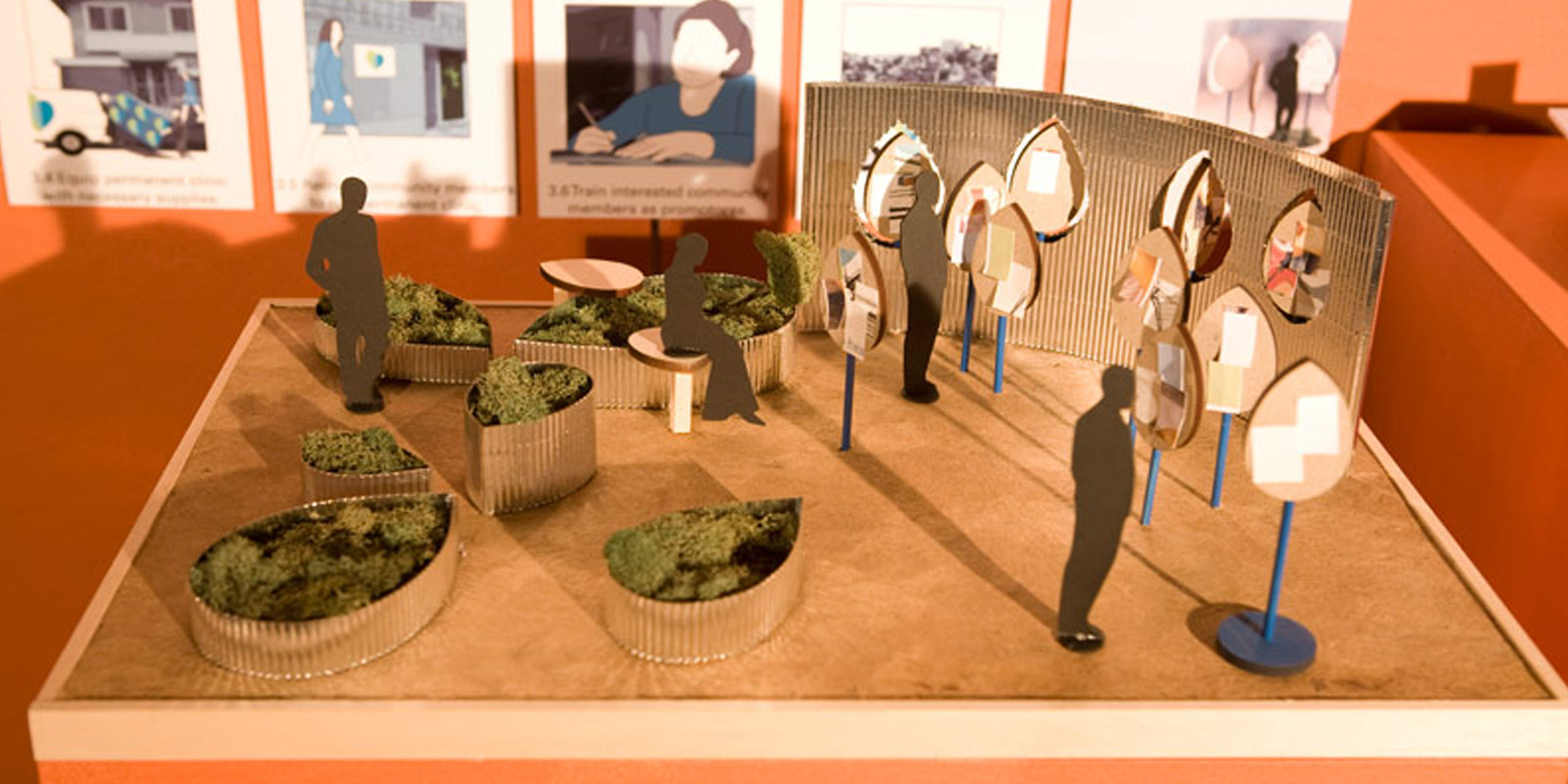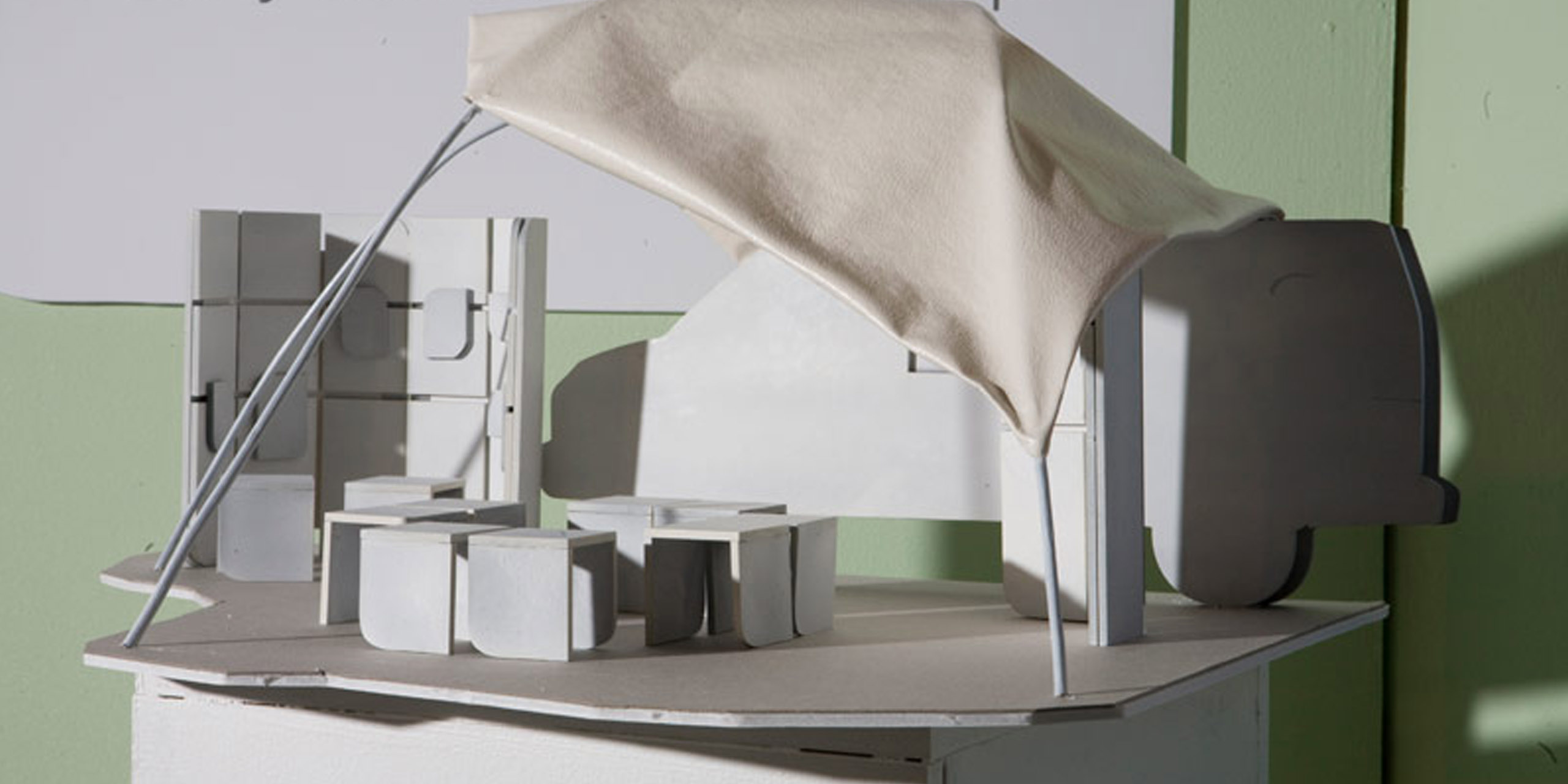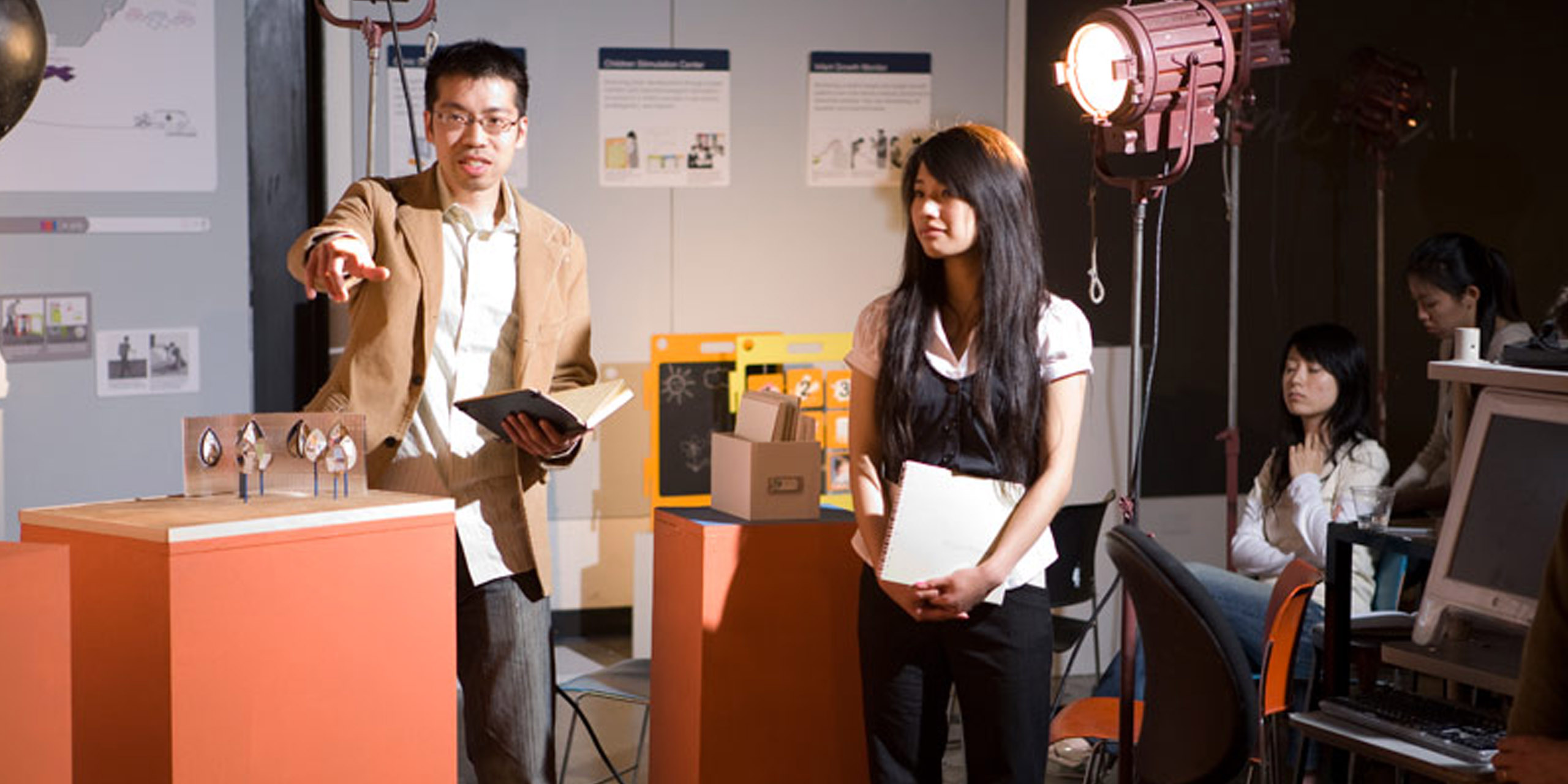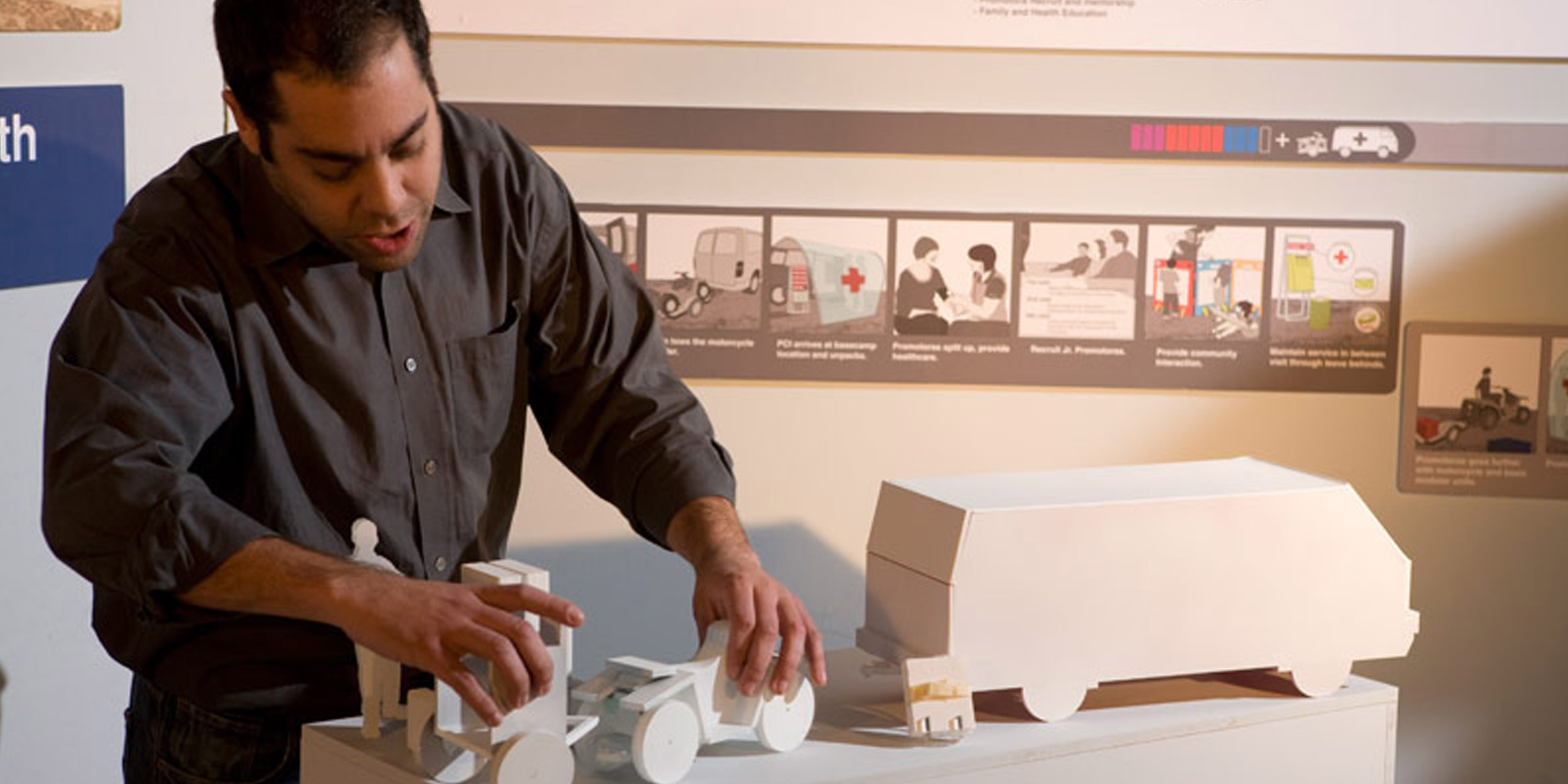Project Concern International (PCI): Tijuana Mobile Health Outreach Clinic
- Public Policy
- Sustainable Development

Spring 2008
Integrated solutions for mobile healthcare operations, as well as communications strategies to support mobile clinic outreach in Tijuana, Mexico.
Project Concern International is a global health and humanitarian aid organization dedicated to community-led development and saving the lives of children and families around the world through integrated, holistic programming. In Spring 2008, PCI partnered with ArtCenter to expand and improve outreach for its mobile health care clinic program in Tijuana, Mexico.
Design Brief
Students were challenged to find integrated solutions for PCI’s mobile healthcare operations and improve on communication strategies to support the clinic’s outreach in high-risk and remote communities in Tijuana, Mexico.
Research Methodologies
In the beginning of the term, students conducted research in Tijuana, which involved site visits at health clinics, PCI Latin America headquarters, and a hospital. The visit allowed them to capture images, learn about the environment and available services, meet the health care workers (promotoras) and community members, and begin determining what could be improved. This field research served as an important foundation for understanding the needs of the communities and service providers. To supplement their field research, Designmatters invited guest speaker Dr. David Williams, Clinical Emergency Medicine instructor at LAC-USC Medical Center, who contributed his extensive experience with emergency aid, mobile health care vehicles, and healthcare facilities in Tijuana.
“I was very impressed by the students’ ability to grasp the need and the reality of the vulnerable communities PCI serves in Tijuana, and to translate that information into realistic yet creative and much needed ideas. For us, this was a great example of how design can contribute to furthering a (our) cause. We especially benefited from hearing a fresh, creative perspective that complements our technical one.”
–Blanca Lomeli, Regional Director for North America, PCI
Outcomes
 close
close
Team Permanente
Read more
This project involved positioning the mobile clinics as scouting agents that assess the community conditions, provide access to healthcare resources, and lay the groundwork for permanent clinics to succeed. Items designed to educate and engage the community included a health education board game and activity book for children, t-shirts, and a training manual for promotoras. To help build a presence and communicate PCI services, they envisioned an evolving modular environment. Beginning with standing bulletin boards to announce clinic visits, it would grow to include bench and wall modules, establishing a service space that could one day be the site for a permanent clinic. This strategy provides for a sustainable system that transfers ownership from the mobile clinic back to the community and promotoras trained within the community.
 close
close
Team Extreme Mobile
Read more
This team created a system to deliver and sustain community healthcare in remote regions of Tijuana. To access these communities, they designed a three-way delivery system, by van, all-terrain vehicle, and foot. Collapsible modules included visual education tools for children and a medical supply storage system. In addition, they designed leave-behind items such as a first-aid kit and child growth monitoring system. These transportable tools and modules would aid the outreach to the diverse environments that PCI services.
 close
close
Team Clinica Movil
Read more
Recognizing that the promotoras are the core of the mobile health care system, this team focused on determining what their needs are, how to make their work easier, and how to recruit and sustain a new generation of promotoras. A color-coded identity system to distinguish promotora “level” was developed which included name tags and signage for the van’s exterior. For the van’s interior, they created customizable shelving and adjustable space configurations. Temporary environments to provide training and services were designed using a modular system with three models for set-up. A versatile backpack/sling bag would allow promotoras to organize medical supplies for off-site visits. All these components, as well as campaign posters advertising the rewards of being a promotora, give promotoras more prominence and serve as recruitment tools for future volunteers.
 close
close
Team Punto
Read more
This team focused on developing a mobile clinic that adapts to non-residential environments and their specific health needs. Inspired by the popularity of professional wrestling in Mexico, they conceived an ad campaign featuring the character Leucocita, a masked female wrestler who serves as a role model for good health habits. Posters featuring this role model giving health advice as well as photographs of actual people from the region form a connection to the community. To further convey healthy habits and announce clinic services, packaging featuring Leucocita was designed to enclose give-away items such as cleansing wipes, vitamins, and condoms. These would be distributed to target communities in places such as the market, sports arena, and night clubs.
Overall Outcomes
Each team explored a different component of PCI’s operations and designed campaigns that work concurrently. Together, these projects provide for a more dynamic mobile clinic and outreach program that empowers the communities, while simultaneously satisfying the needs of current promotoras and attracting a new generation of volunteers. The final outcome is a sustainable solution to promote healthcare access and improve the overall participation and health of the community.
Due to the success of the studio, PCI invited Art Center to do a special presentation of the work to their leadership, current and prospective sponsors, and promotoras, which was hosted by the San Diego Museum of Contemporary Art on May 30, 2008. A documentary film about the studio, directed by Art Center alumnus Robert McLendon and produced for Designmatters by Elisa Ruffino won a silver W3 web award in the category of documentary short film, and can be viewed on the sidebar above.
